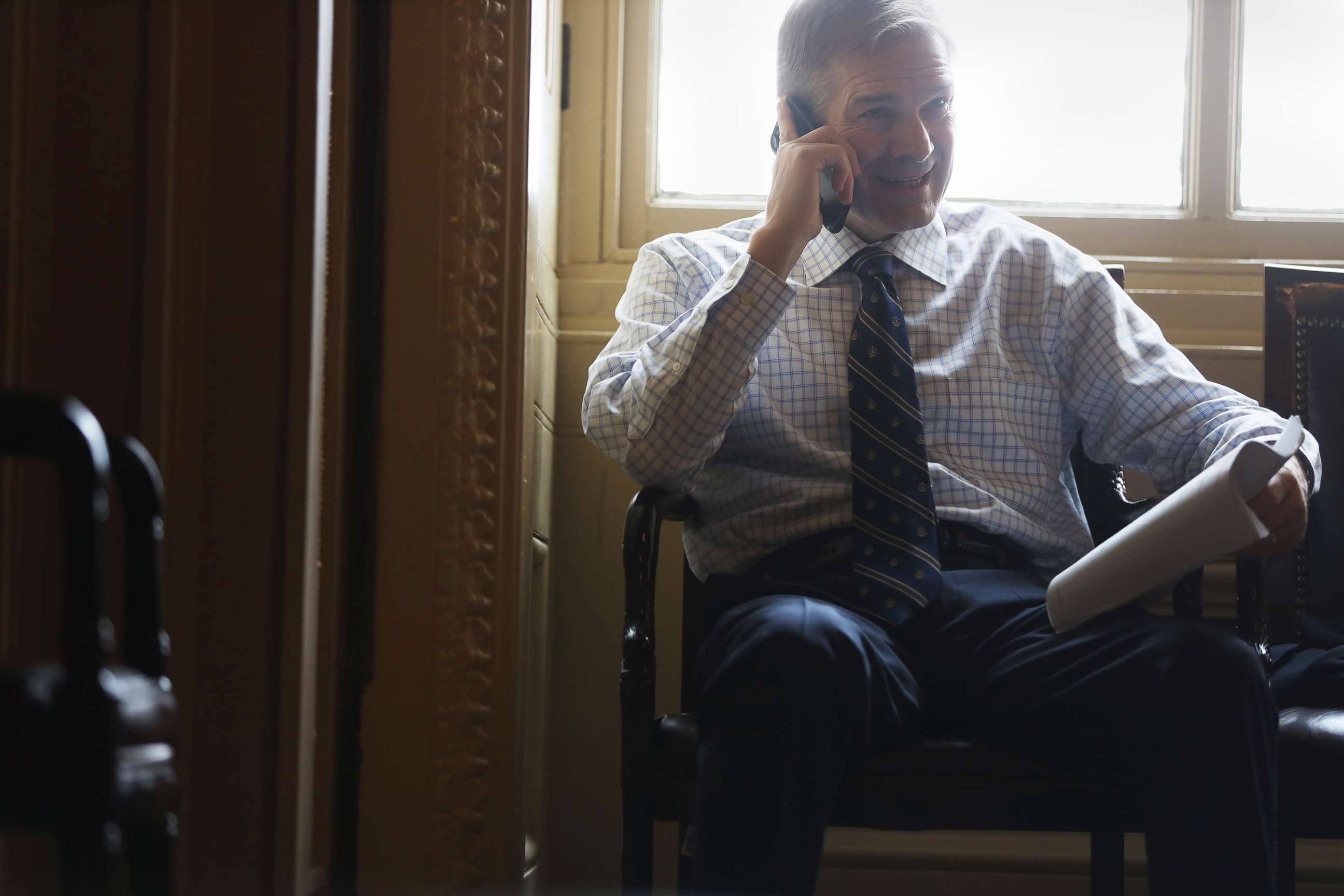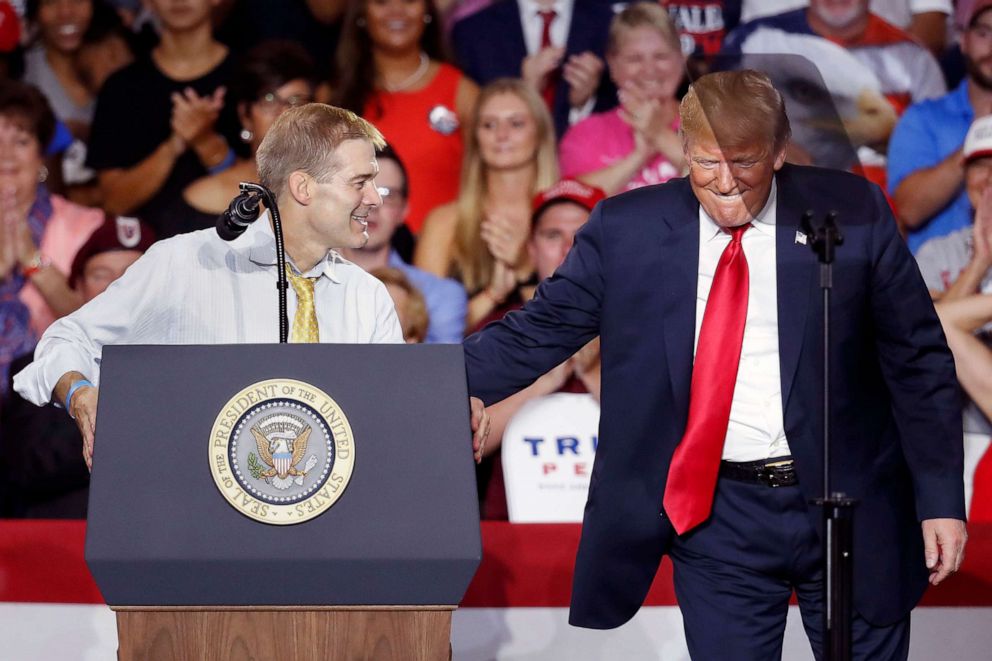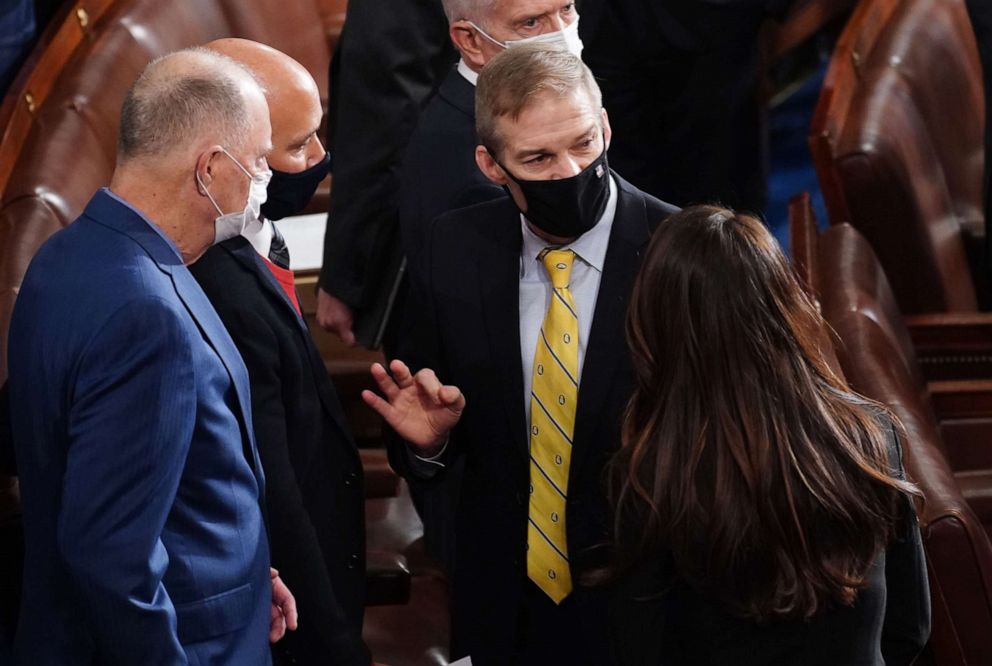House committee records show Trump, Jim Jordan spoke the morning of Jan. 6
A source said the records show Trump made a 10-minute call to Jordan.
The House select committee investigating the Jan. 6 attack on the U.S. Capitol has obtained White House records showing then-President Donald Trump spoke with Republican Rep. Jim Jordan of Ohio that morning, sources confirmed to ABC News Friday.
The source said call logs records, part of the documents the National Archives handed over to the committee, found that Trump called Jordan from the White House residence and they spoke for 10 minutes, and while Jordan has said he did speak to Trump that day, it was not previously known they spoke that morning, before the attack and the counting of electoral votes.
One entry shows a request from Trump to get Jordan on the phone. A second entry detailed the length of the call.
The records also show Trump did not leave the White House until 11:40 a.m. on Jan. 6 to speak to his supporters on the Ellipse.

ABC News asked Jordan earlier Friday as he was racing out of the Capitol with suitcases in hand, "If you say you have nothing to hide, why not cooperate with investigators?"
"We laid everything out in the letter you guys can read our letter and the biggest point we made in the letter was when you already have a committee that has proven they will alter evidence and then lie to the American people about it that's a big concern but we lay that out and other concerns in the letter," Jordan replied.
He also refused to answer whether he would comply with a subpoena from the committee.
"We'll see what happens we'll see what the committee does. I've got to get to the airport," he said.
The House select committee sent a letter to Jordan in December requesting he appear for an interview with the panel about his communications with Trump on and before Jan. 6.

Jordan, who has attacked the committee's integrity, was among the House Republicans nominated to serve on the select committee by House GOP Leader Kevin McCarthy, R-Calif. But House Speaker Nancy Pelosi, D-Calif., blocked him from being seated on the panel given his past false statements about the election results -- which led McCarthy to withdraw all his selections to the committee.
Jordan is also one of 147 House Republicans who voted against certifying the election for President Joe Biden and has refused to cooperate with the House investigation into Jan. 6.
He has previously acknowledged that he spoke with the president the day of the riot but Friday's development that the committee has record of a 10-minute call with Trump provides more insight into the records the committee has obtained.
The Ohio congressman admitted last July that he -- like McCarthy -- spoke to Trump on the phone on Jan. 6.
Asked in an interview with Ohio Spectrum News reporter Taylor Popielarz if he spoke to Trump before during or after the attack, Jordan said he didn’t remember.
“I spoke with him that day. After? I think after. I don't know if I spoke with him in the morning or not. I just don't know,” he said. “I don't know when those conversations."

Fox News host Brett Baier also pressed Jordan around the same time on whether he spoke to Trump that day, and Jordan repeatedly deflected, saying he's "talked to the former president umpteen times -- thousands, countless times."
Baier followed up, "But I mean on January 6, congressman."
"Yes," Jordan said. "I mean, I've talked to the president so many -- I can't remember all the days I've talked to him, but I've certainly talked to the president."
Conversations in Trump's orbit, such as the call with Jordan, are key to what the committee is seeking to investigate.
Jordan, a leader and founding member of the Trump-aligned House Freedom Caucus, was among the GOP lawmakers who planned to challenge the election results on the House floor. He has said he had "nothing to do with" the attack on the Capitol.
After the election, the Ohio Republican focused most of his efforts challenging the legality of the pandemic-era voting changes in many states rather than some of the more outlandish and unproven theories of election fraud pushed by some Trump supporters.
ABC News' Libby Cathey contributed to this report.




